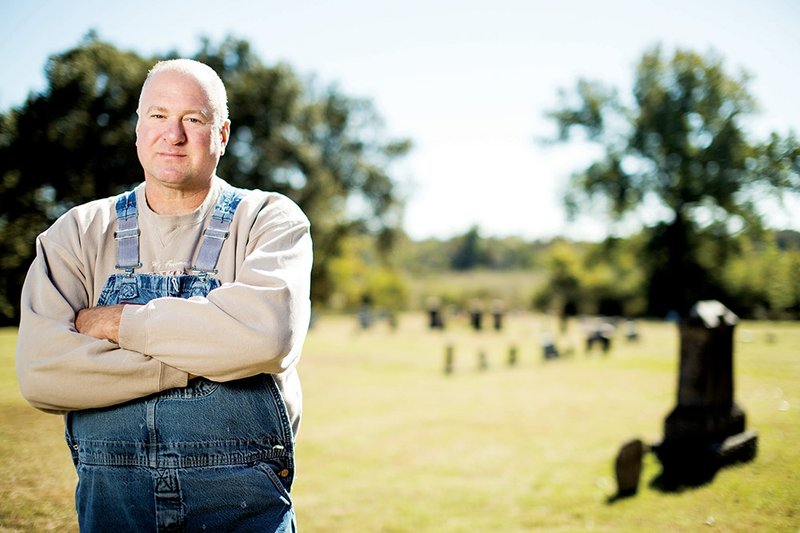For some, cemeteries strike feelings of fear or sadness, but for Tom Bailey of Franklin, cemeteries are his workplace.
He’s been digging graves since 1986, when he started helping his father-in-law do the job. Bailey graduated from Lyon College in 1987, then began digging full time.
He works for seven local funeral homes within about a 40-mile radius, and he receives calls from them asking him to dig graves for families who’ve lost a loved one.
“We’ve just always provided the service,” Bailey said.
Though only seven funeral homes in the area call him, he has dug graves at about 150 cemeteries.
“It never surprises me because every year, I’ll dig at one or two new places,” Bailey said. By providing a service like digging graves, Bailey said, he has to be available 24 hours a day, seven days a week.
“It’s one of the drawbacks [of the job],” he said. “I can’t ever plan anything. I’ve missed family get-togethers and holidays, but that’s part of it.”
His schedule is strictly day to day, and he said his workload varies each week.
“One week I might have 12 graves, and the next week I have one,” Bailey said.
Scheduling is one factor in his job, but what’s the most difficult part of his job? The weather.
“I’m always on call, and they don’t postpone funerals unless it’s really icy on the roads,” he said. “I’ve dug in the snow. If it’s pouring down rain and they schedule up a grave, it doesn’t matter. I’ve got to go out and dig.”
Rain and other precipitation cause problems when it comes to digging graves because of what the water does to the ground.
“I try not to leave a mess [when I dig], but that’s not always the case. I always try to get the dirt out and put it in my dump truck,” Bailey said.
“I try to leave it clean around the grave, but a lot of times, it’s really tight, and I have to get around the graves with a 16,000-pound backhoe. It’ll sink down [into the ground] pretty good.”
To avoid leaving tracks and mud around the gravesite, Bailey uses plywood to drive on to keep from tearing up the ground.
His job is tough, but the appreciation he gets from the families makes it all worth it, he said.
“Everybody likes a pat on the back,” Bailey said. “About the time you don’t think anybody really cares about what you do, one of the family members will come up to you and say, ‘We appreciate the good job. It’s nice, neat and clean,’ and that’s all it takes for me.”
Through the years, if he has had to dig a grave in advance, he said animals sometimes show up in an open grave opened up the night before.
“I’ve found skunks, armadillos, rabbits, rats, and I caught a deer in a grave one time,” Bailey said.
When the time changes in the fall, and it gets dark earlier, Bailey said, sometimes he has to dig graves by the lights on his backhoe.
“I may have a 2 o’clock service, and I’ve got another grave for the next day,” he said. “I’ve gotta leave and drive 30 miles [each way to another cemetery].”
When he has more than one grave in a day, he said, he doesn’t make as much money because he has to use more fuel.
“When you have two graves in one day, you have to double back,” Bailey said. “My work is about availability. That’s what you pay for. If it’s raining, snowing, it doesn’t make any difference. I’m the first one there and the last to leave.”
Even though it’s hard work and trying at times, he said, digging graves for a living doesn’t bother him.
“Like my father-in-law said, ‘Somebody’s got to do it,’” Bailey said.
Staff writer Lisa Burnett can be reached at (501) 244-4307 or lburnett@arkansasonline.com.
